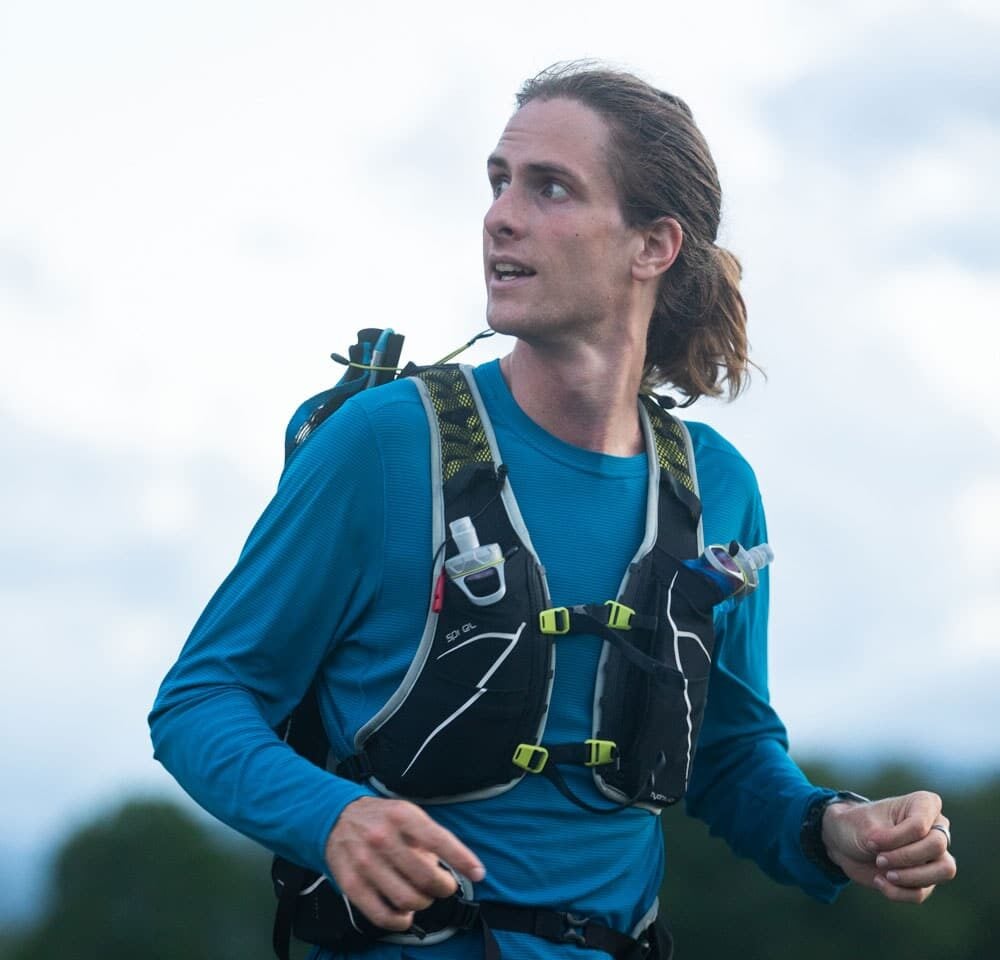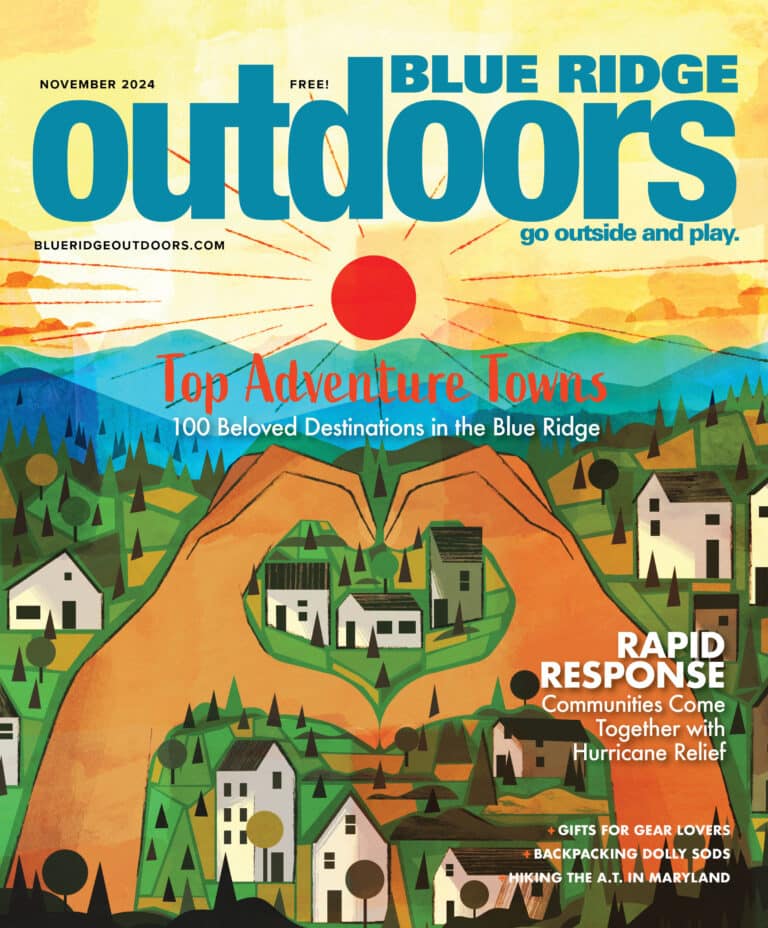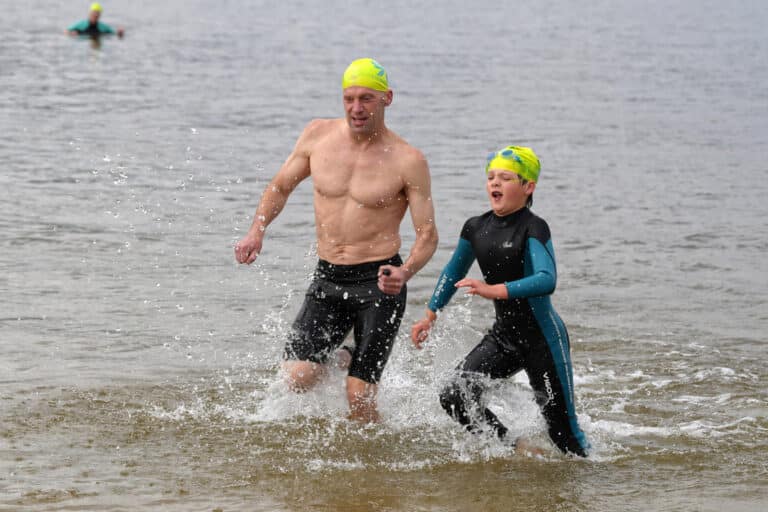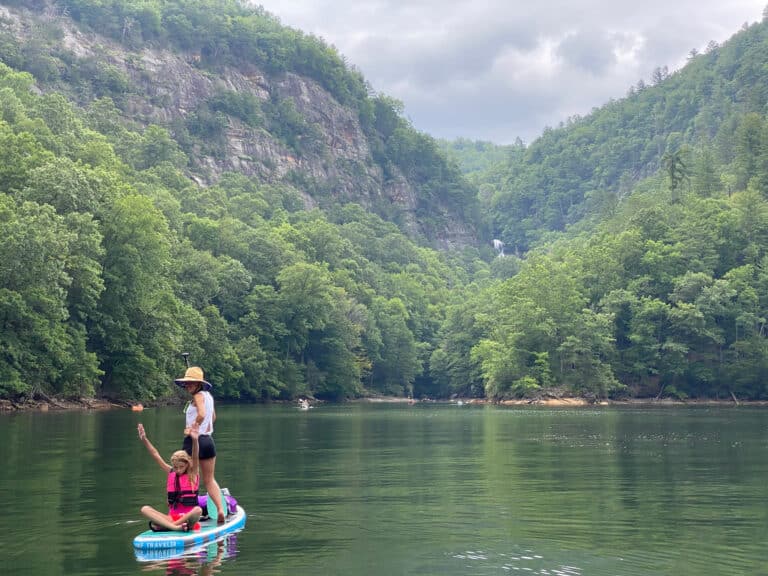Going the Distance
Politicians and ultrarunners seem like opposites. One spends a lot of time indoors wearing fancy clothes and talking to crowds. The other tends to avoid crowds and spends long hours outdoors wearing the fewest and simplest clothes possible.
But the running trail and the campaign trail have more in common than you might think. Running an ultra and running for political office both take grit, perseverance, and a willingness to endure a lot of ups and downs.
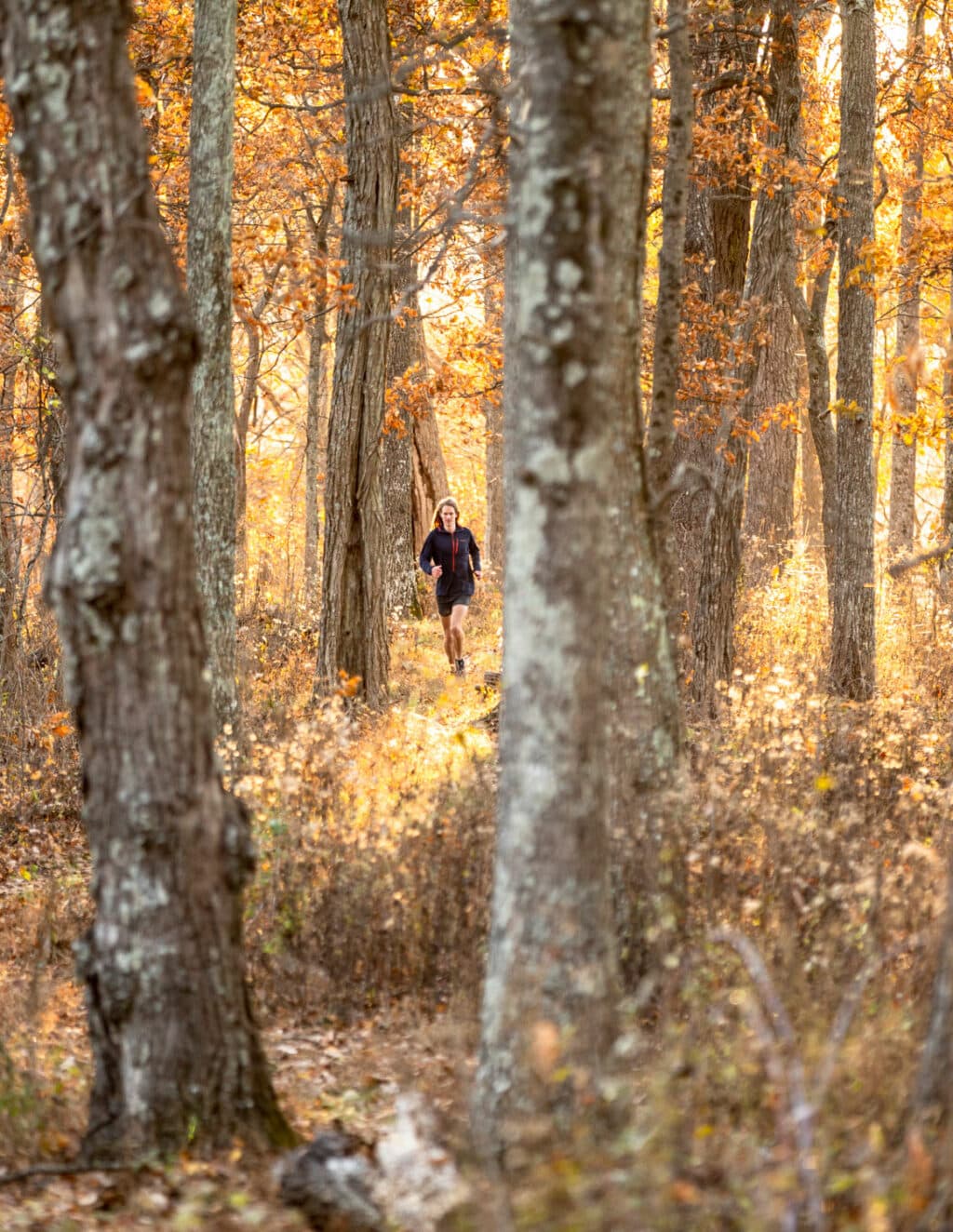
Just ask Canyon Woodward, an ultrarunning phenom who also organizes winning electoral campaigns. He holds the fastest known time for SCAR—the 72-mile Appalachian Trail route across Great Smoky Mountains National Park. Woodward also was the campaign director for Chloe Maxmin, who became the youngest person ever to be elected to state office in Maine.
Woodward works to heal the political divide by focusing on rural America, where he was born and raised. Woodward lived deep in the woods of western North Carolina, attended Harvard, and recently co-founded the nonprofit Dirtroad Organizing, which provides concrete tools and strategies for current and aspiring leaders who are working towards an equitable and just democracy in rural America.
He’s also featured in an award-winning short film, Rural Runners, directed by his brother, Forest, that follows his first SCAR attempt and his campaign organizing for Chloe Maxmin.
Said Woodward, “There are so many things I don’t like about politics, but it affects our lives in so many ways, that I don’t have much choice to engage in it.”
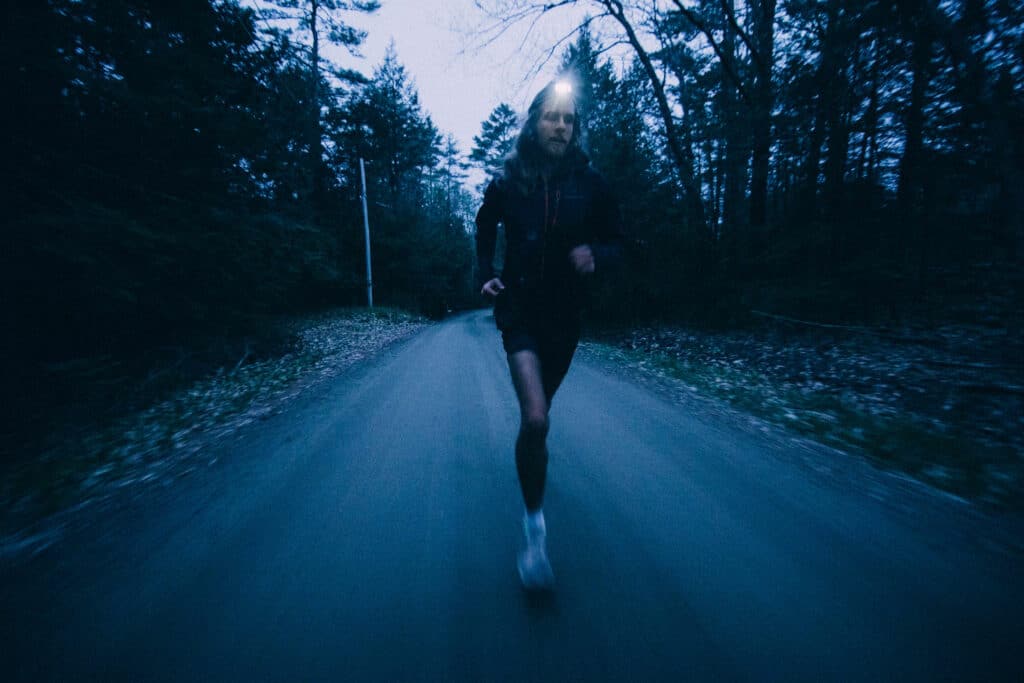
BRO: You had a unique childhood. What was it like?
CW: I grew up in a cabin deep in the woods of rural western North Carolina, and I spent a lot of time outdoors. I was the baby of the family. I was homeschooled all the way through high school, but I also took some classes at Franklin High and a community college. I had a lot of freedom and autonomy growing up. My parents were awesome, and they were pretty hands-off: they provided some basic structure around math and writing, but mostly they allowed us to make our own schedules and dive into whatever we were interested in.
BRO: How did you get started running?
CW: I was running around outside constantly as a child trying to keep up with my older siblings.
I got my first taste of competitive running through high school cross country. My coach, Denis Davis, was a phenomenal trail runner who introduced me to the world of ultras.
Running legend Aaron Saft was also an early coach who was instrumental in my development as a competitive runner, and his contributions to growing the sport in this region are unparalleled.
BRO: What does your training look like?
CW: These days, I run between 60 and 80 miles a week. I usually have a long run of 16 to 25 miles and a workout which might consist of hill repeats. I am coached by David Roche (Some Work All Play), an absolutely incredible coach who has helped me strive towards my biggest goals. I started running professionally in 2021, and I am supported by the Craftsbury Green Racing Project, Patagonia, and Scarpa.
BRO: What was it like to set the FKT for SCAR?
CW: I came up short in my first attempt at SCAR. On my second attempt, I got started a little before first light, and after the first long climb, I soaked in the gorgeous ridgetop views. Then around mile 25, I was flying full speed through a technical section when all of the sudden, I tripped and was splayed out on the ground. I felt okay, but I noticed one of my fingers looked a bit wonky. I had dislocated my finger, which made it a bit difficult to open water bottles, but otherwise didn’t hold me back. It was otherwise a perfect day. I finished with the sun still up and took a dip in Lake Fontana, the late evening light on the mountains, feeling so connected to home.
BRO: Have you noticed any parallels between running ultras and running for office?
CW: The power of commitment is an important through line for both running and politics. Whether it’s a big race or election day, you place your stake in the sand. You commit wholeheartedly to it and dig in. That’s where the magic happens.
Both also highlight the importance of place. Organizing work is ultimately about face-to-face conversations in communities and coming to understand a place more fully. It’s driving down dirt roads all over the place to listen and learn and root oneself more deeply.
Similarly with running, it’s fun to venture along old gravel roads and steep trails deep in the mountains. Connecting to the landscape on foot has deepened my sense of belonging and widened my perspective.
BRO: How were you able to elect a progressive climate organizer in a rural conservative district?
CW: Chloe Maxmin and I met at Harvard, where we had done a lot of climate organizing together. We are pretty far left politically, and Chloe had decided to run for state office in a conservative district in Maine that had gone Republican by more than 16 points in the last three elections.
Our approach was centered in listening. We showed up on doorsteps and front porches of households that probably never had a Democrat knock on their door. Rather than try to get our messages across, we mainly just listened—really listened. We heard what people’s frustrations and hopes were and then tried to incorporate them into our campaign. Every single one of Chloe’s bills came from those conversations. It was really about listening and bringing people in.
BRO: How do you handle difficult conversations with folks who may not agree with you?
CW: When we show up and really make an effort to listen, we realize that there are human beings on the other side, and we have so much more in common than we realize. Centering empathy is key. The only way we change things is thorough empathetic conversations. Hopefully, those conversations move people, but it also requires being open to taking a hard look at our own views.
My brother Forest’s film Rural Runners showed that it’s possible to organize and create change in rural America as young progressives, and hopefully it has helped change the overall narrative around rural America.
BRO: How do you balance competitive running and your political work?
CW: On a psychological and spiritual level, running and politics are very complementary. When I am immersed in political work, running helps me get out in nature, out in my body, to soak in the goodness.
All photos: Woodward holds the fastest known time for running the 72-mile stretch of the Appalachian Trail route across Great Smoky Mountains National Park. Photos courtesy of Canyon Woodward.
